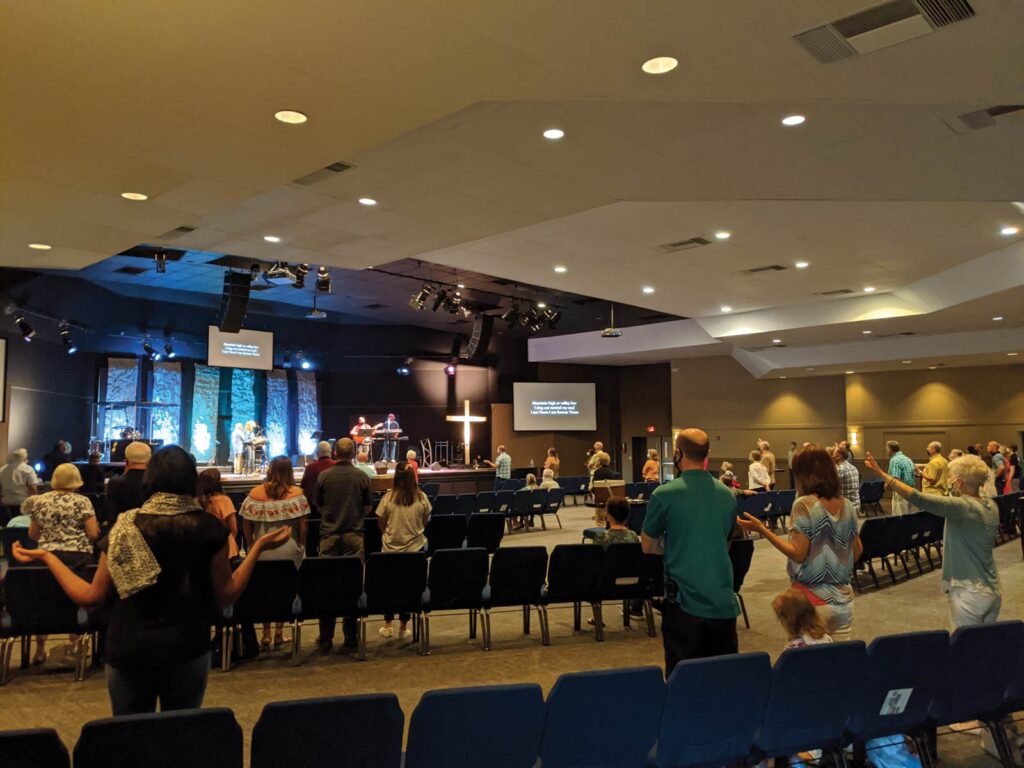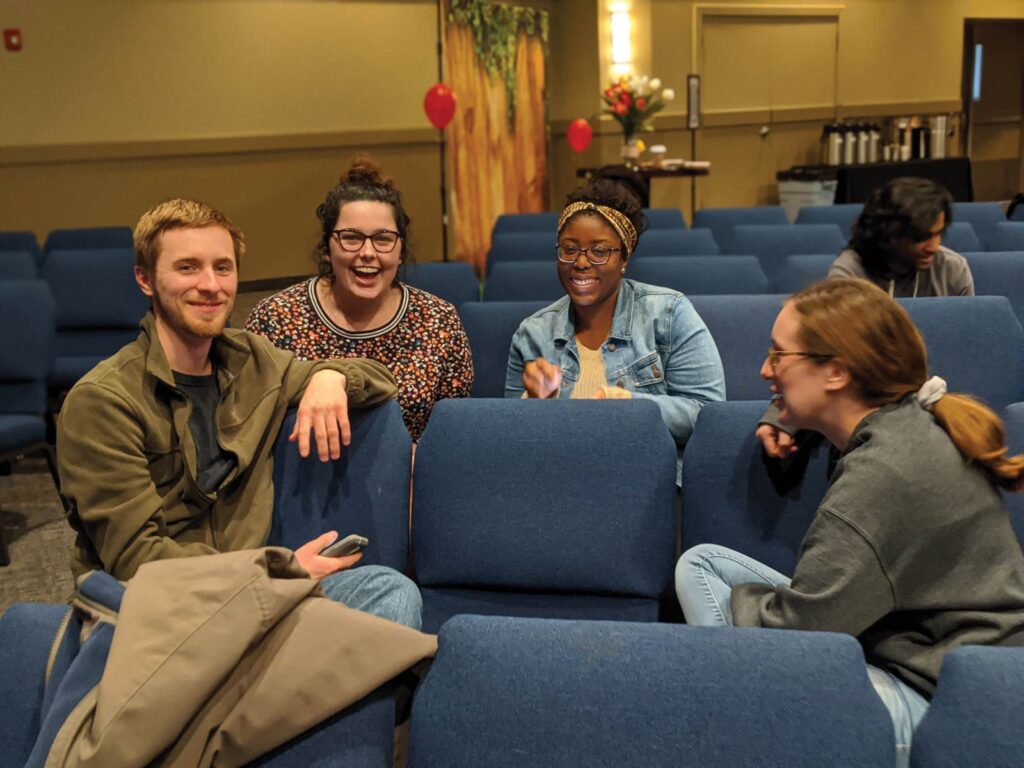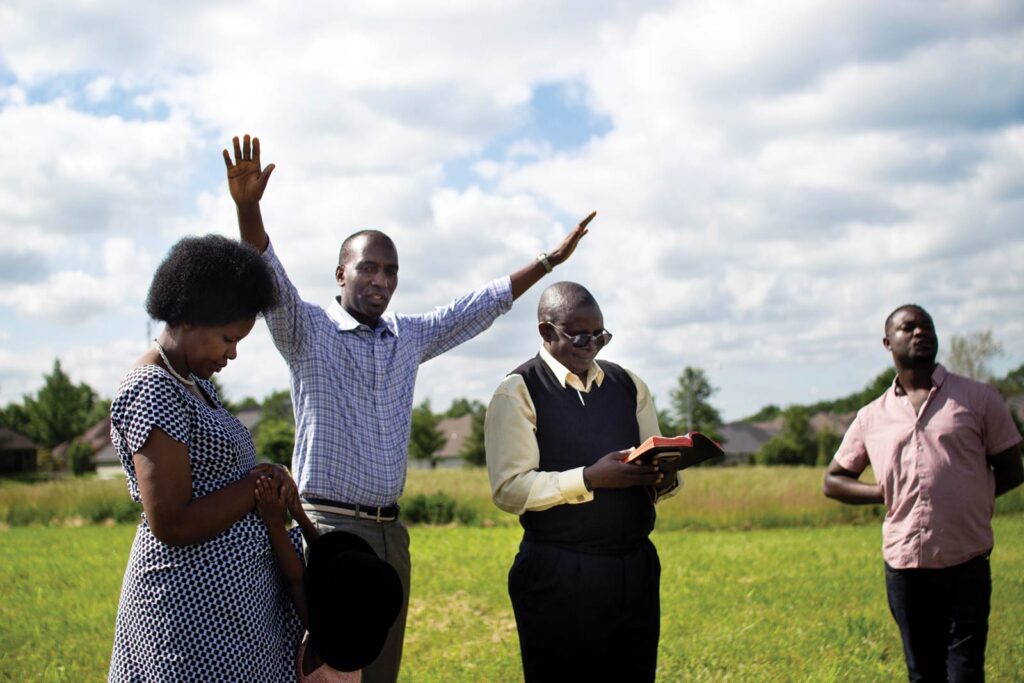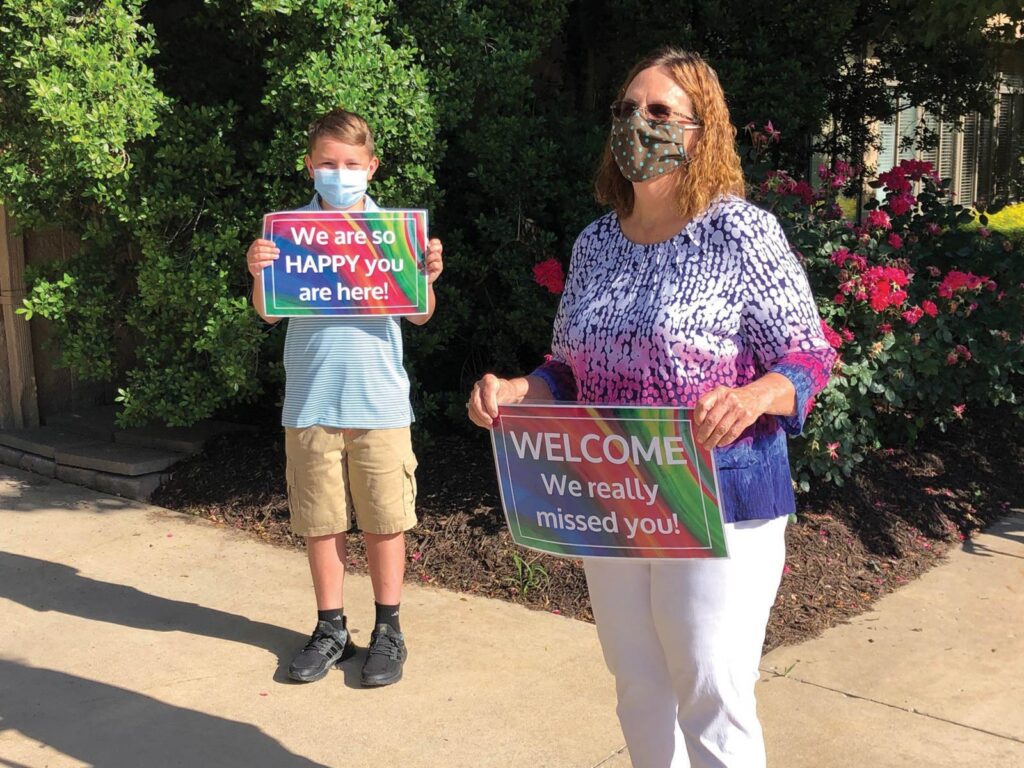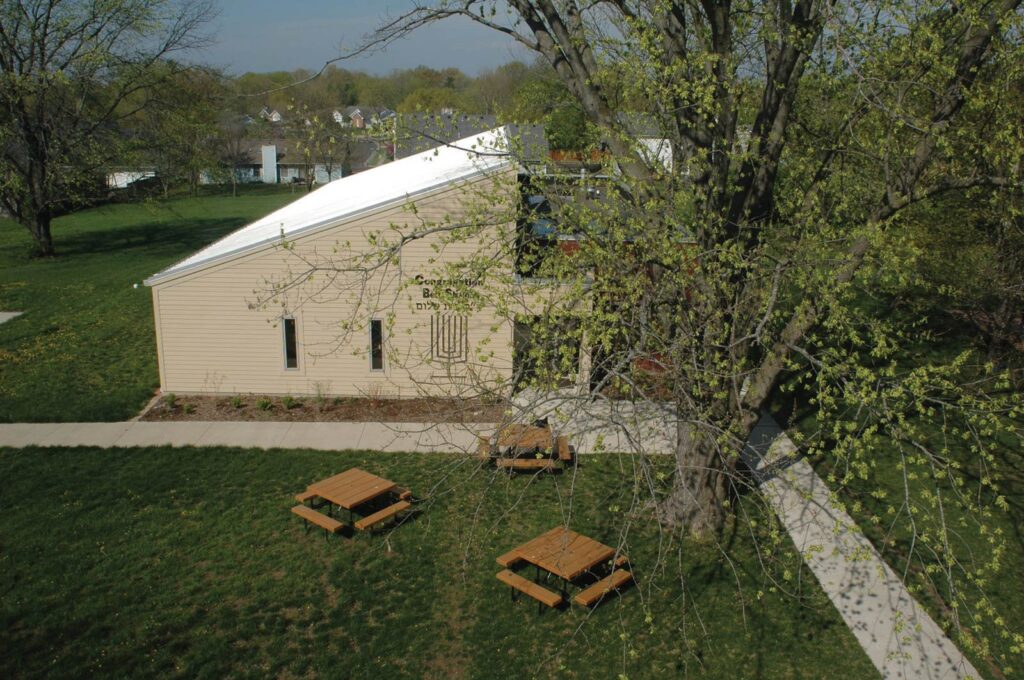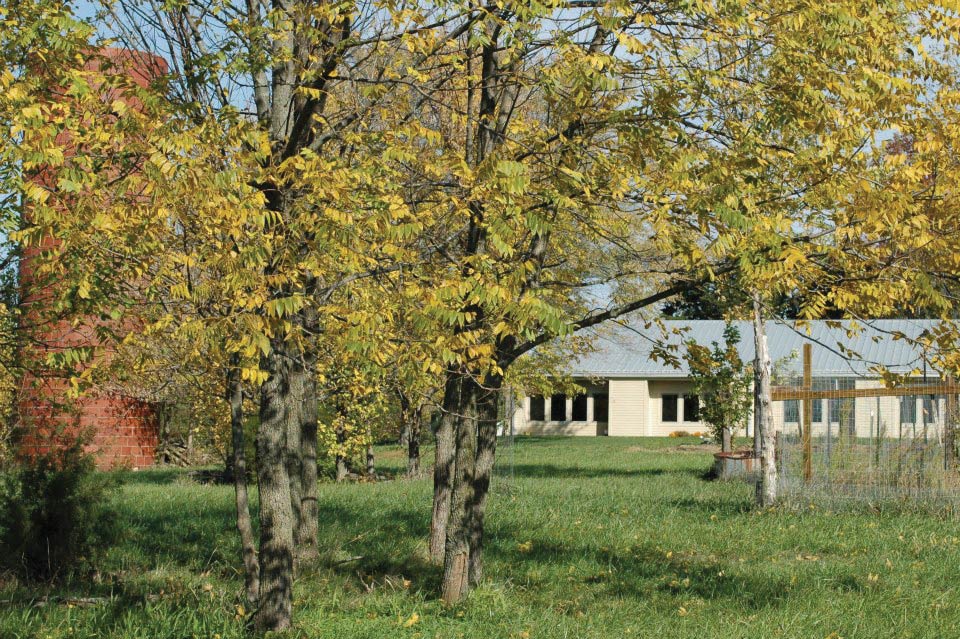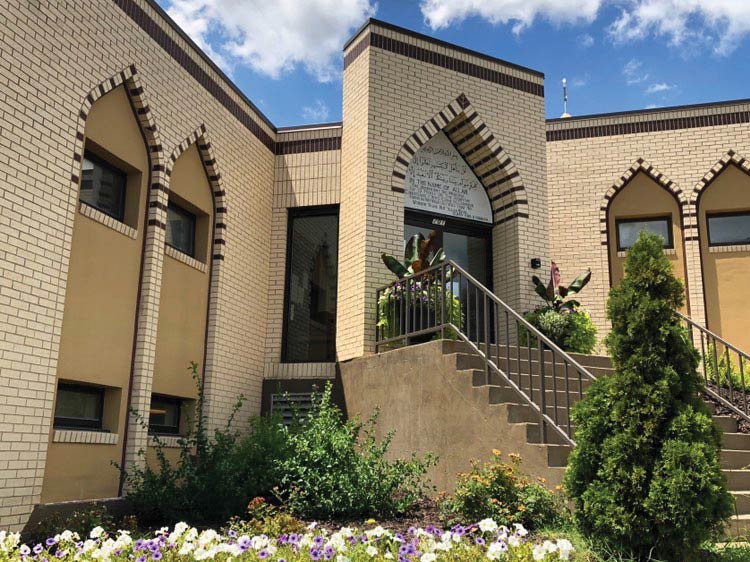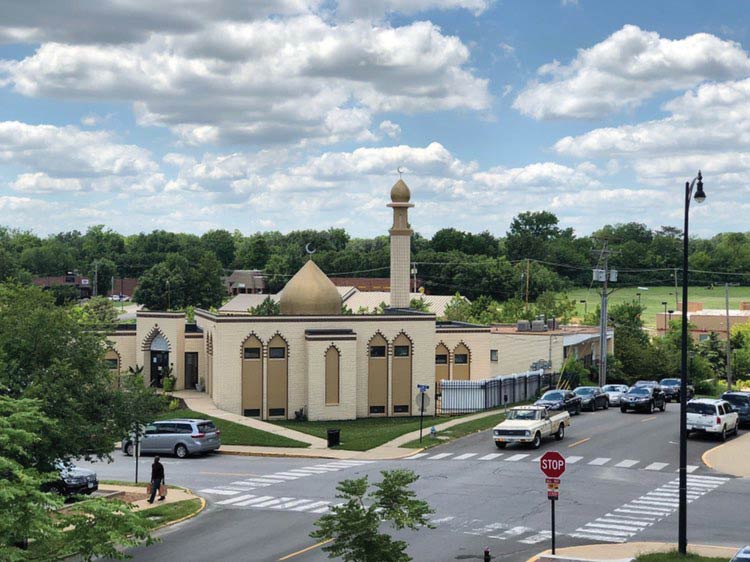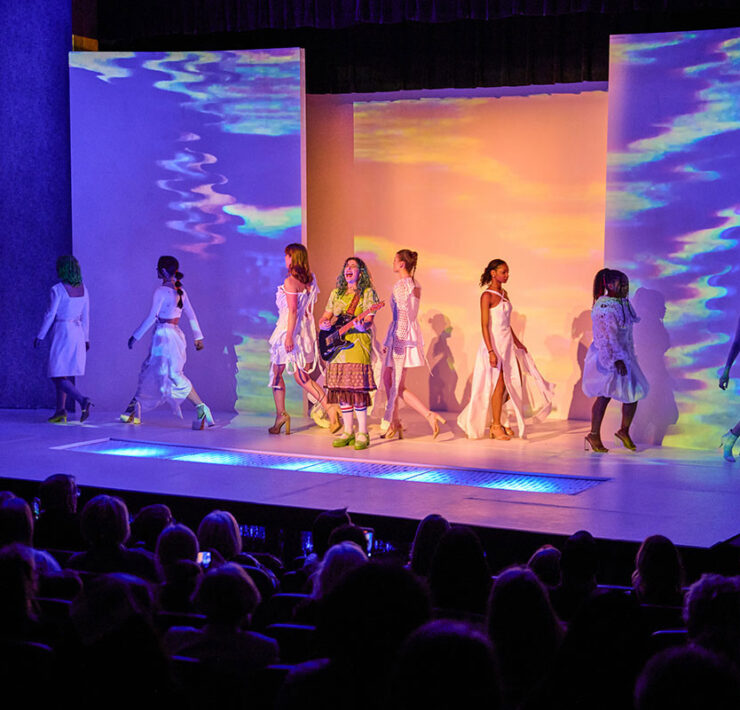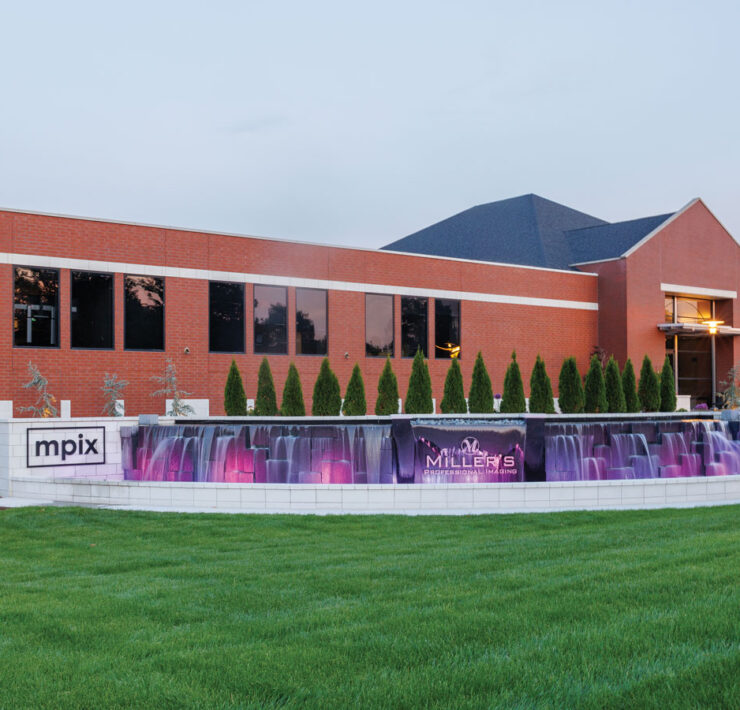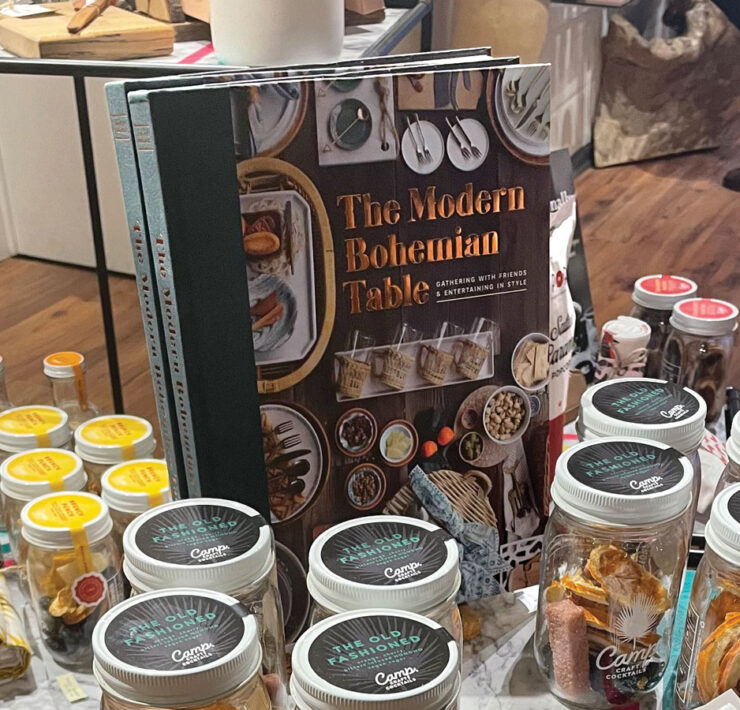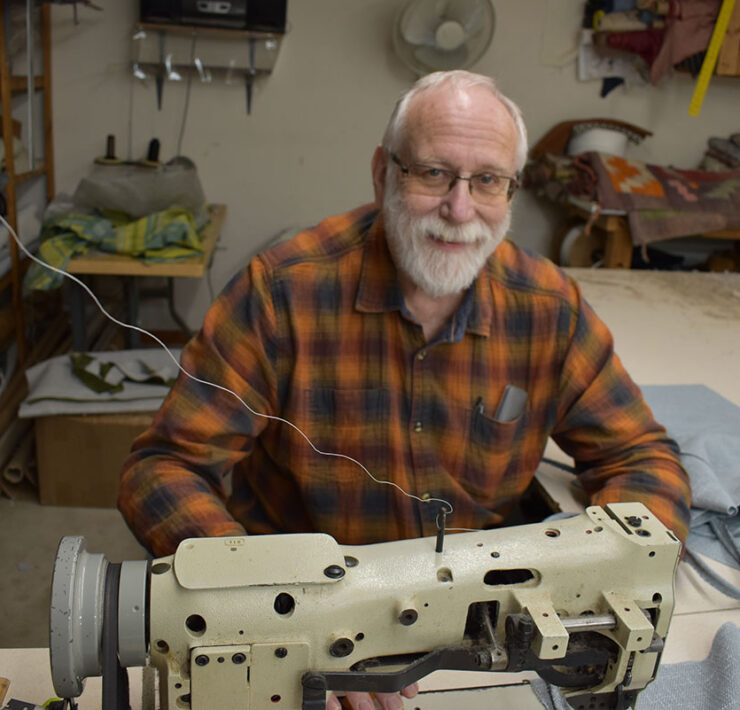Faith In Community
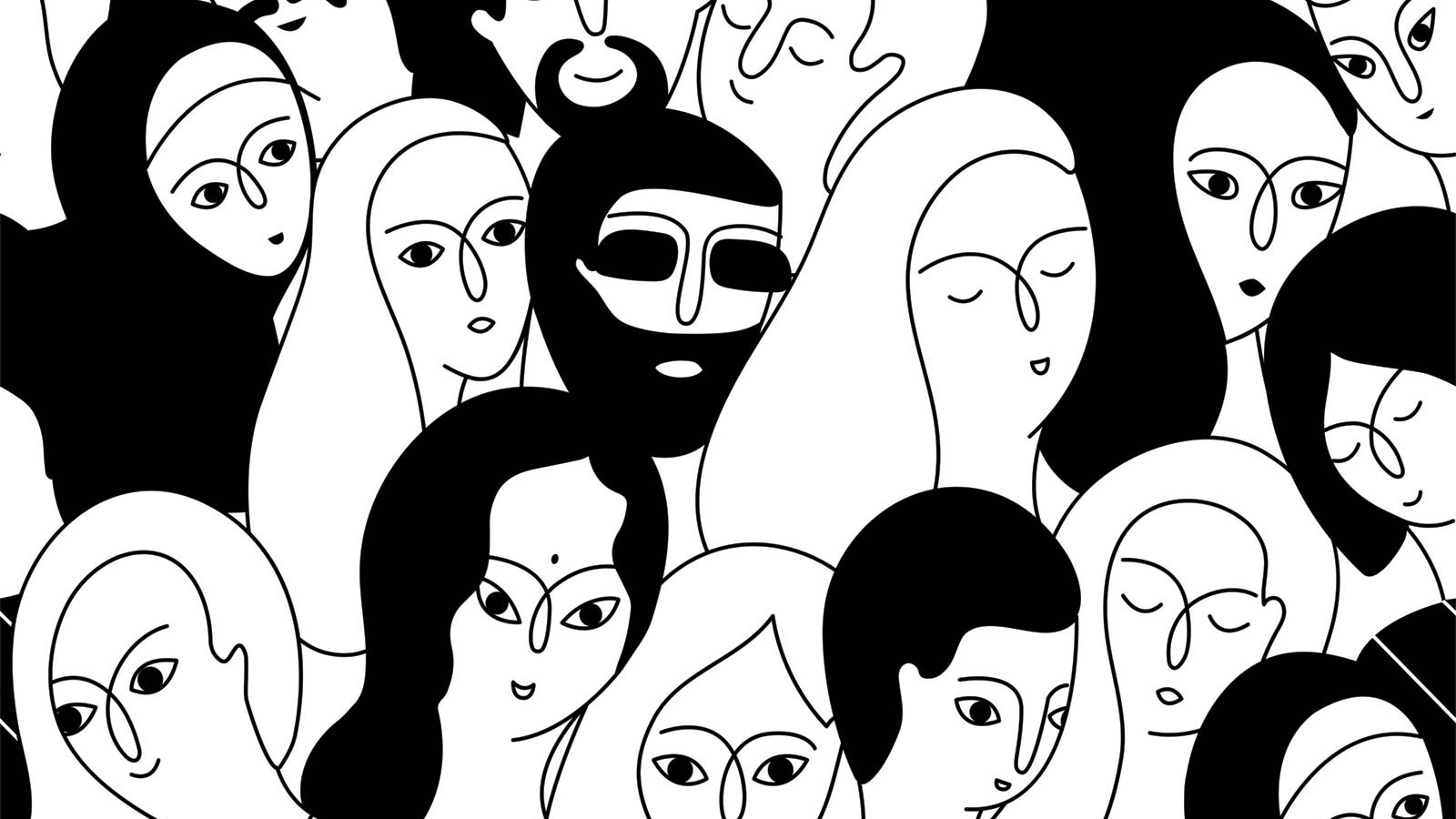
One of the many perks of living in a college town like Columbia is the great diversity — diversity in food, culture, music, and religion. The yearly influx of professors, doctors, and students from every part of the world makes it possible for many faith traditions to thrive in Columbia, from Ba’hai to Hinduism to Christianity, Judaism, Islam, and beyond. This rich tapestry of faith makes Columbia a global community that offers open doors to anyone who is looking for them.
The Lay of the Land
According to the Pew Research Center, 70.6% of Americans identify as Christian (about 36% Protestant and about 20% Catholic). About 23% of Americans are religiously “unaffiliated,” 7% of which are agnostic or atheist, 16% of which say religion is not important to them. Six percent of the U.S. population believes in non-Christian faiths like Judaism (2%), Islam (<1%), Buddhism (<1%), and Hinduism (<1%).
The Pew Research Center details that numbers in Missouri are similar: 77% of Missourians identify as Christian (56% Protestant, 16% Catholic); 3% non-Christian faiths; and 20% unaffiliated (5% agnostic or atheist, and 15% for whom religion is not important). Many of the statistics detail that the average Missouri Christian is a married white woman, without children, between the ages of 30 and 64, with a high school education, who is politically conservative, and makes less than $50,000 a year.
A Look at Christianity
Christian Fellowship Church, located off of Scott Boulevard, is a bible-centric, non-denominational Christian church with a congregation of about 1,300 that formed in 1978 by a small group of mostly college students. One of those founding members is Senior Pastor Phil Schaefer, who came to Columbia from St. Louis to attend MU.
“Family — we’re a spiritual family,” Pastor Phil says about what makes Christian Fellowship the church that it is. “Relationships are at the core of our Christian life. We believe that in order to live out our faith, it has to be done in community. It’s not a solo endeavor. Every church has its own DNA that makes it distinctive. [For Christian Fellowship], it really has been about fellowship. That has been the hallmark of our existence for the last 40 plus years. [That fellowship has been about] the benefits of walking life out together over a long period of time.”
Christian Fellowship offers traditional and contemporary Sunday morning services, as well as a multilingual African service on Sunday afternoons. Many African refugees call Christian Fellowship their spiritual home, which adds to the diversity of the overall congregation. The church offers ministries for children, youth, college students, men, women, and those refugees.
“Columbia has good, diverse churches serving their community, serving their people in and out of a pandemic. It’s a good sign for our community as a whole.”
Phil Schaefer, Senior Pastor at Christian Fellowship church
Pastor Phil says that acts of service are a core component to the philosophy at Christian Fellowship. Several Columbia nonprofits were born out of the church, including Love INC and Granny’s House. According to the church’s website, “Just as Jesus looked with compassion on others and was moved to action, our desire is to follow Him in sharing our hearts and time in practical ways to bless our city.”
Just as the church’s congregants find community in the church, the church itself is part of the broader community of Columbia churches.
“We are for other churches prospering to affirm other churches and affirm others in their faith,” Pastor Phil says. “We have built relationships with Columbia’s predominantly Black churches, participated in prayer breakfasts, and have held regular race discussions. We also participated in Columbia’s Juneteenth celebration by providing resources and volunteers.”
Like most other churches in Columbia, Christian Fellowship has moved to streaming services and virtual classes during the COVID-19 pandemic. But Pastor Phil reminds us that “there is life beyond pandemic.” He says we are tested in our patience and kindness, but there is hope in making love our aim. Phil points to 1 Corinthians 13, including the line “And now these three remain: faith, hope, and love. But the greatest of these is love.”
“Columbia has good, diverse churches serving their community, serving their people in and out of a pandemic. It’s a good sign for our community as a whole.”
A Look at Judaism
While Pastor Phil has lived in Columbia and has been able to observe its growing religious diversity since the 1970s, Rabbi Phil Cohen of Congregation Beth Shalom arrived in Columbia from Greensboro, North Carolina in May, mid-pandemic, to serve as an interim rabbi after longtime rabbi Yossi Feintuch resigned. With a limited view of Columbia as a whole and an understanding of the 145 Jewish families that make up the congregation gained at arm’s length through virtual activities, he has found that many Beth Shalom congregants have an above-average knowledge of the Jewish tradition. He also says that the congregation is very diverse, with most of the members coming from many parts of the country, and that this creates a pluralistic environment that seems to work.
Congregation Beth Shalom was formed in 1974; before that, the practice of Judaism in Columbia was confined to the Hillel Foundation at the University of Missouri, which was formed in 1947. There are a few different movements within Judaism, but Congregation Beth Shalom is a member of the Union of Reform Judaism, which is committed to inclusion instead of exclusion; Reform Jews are committed to the equality of women, who can be ordained as rabbis, and to the full participation of gays and lesbians in all parts of synagogue life, for example.
“The congregation is very much concerned about working toward equality in the state and the nation,” Rabbi Phil says. “I would say that mercy, compassion, and equality are key Jewish values.”
In understanding what the person’s responsibility to God is in the Jewish tradition, Rabbi Phil says, “It’s two-part: There is the act of serving God through prayer and ritual observance to develop a communal and personal connection with God. And it’s the act of serving other people, both Jewish and non-Jewish.”
The act of serving others is known as tikkun olam. At Congregation Beth Shalom, this service takes many forms, such as supporting Loaves and Fishes with meals, an annual coat and blanket drive, donating a “substantial” amount of produce from the CBS’s farm, a partnership with the Newman Center at MU to the Food Bank for Central and Northeast Missouri, making bean soup mixes to benefit the Russell Chapel Food Bank, collections and donations for Room at the Inn, and even adopting a family at Christmas.
- Judaism is monotheistic; it is the oldest of the three “big” monotheistic faiths (Christianity, Islam, and Judaism).
- Its religious and sacred texts include the Torah (the Old Testament of the Bible), the Prophets, and the Writings.
- Israel is central to the faith, as Jews believe that God gave Israel to the Jews; Jews turn to Jerusalem when they pray.
- Dietary laws are a part of Jewish life; they do not eat pork, blood, or shellfish and practice kosher or humane animal slaughter practices.
- The Jewish church is called a synagogue or temple.
- Jewish tradition dictates that coming of age happens for girls at age 12 and for boys at 12 and 13, which is celebrated by bat mitzvah for girls and bar mitzvah for boys.
- High Holy Days are observed in September and October and are solemn and introspective.
- Hanukkah is celebrated in December during an eight-day celebration that commemorates the revolt of Jews against their Greek-Syrian oppressors
- in the second century B.C.
- Jews live in anticipation of the Messiah. The Messiah can come at any time, without warning.
A Look at Islam
Islam is one of the world’s largest religions that has a growing community in Columbia. The Islamic Center of Central Missouri, on Fifth Street, is the only mosque in Columbia. The ICCM website says that “The Islamic Center of Central Missouri is home to a very diverse and dynamic community composed of, among others, indigenous Muslims, international students, and immigrants.” It was formed in 1983 and has been mostly closed during the pandemic.
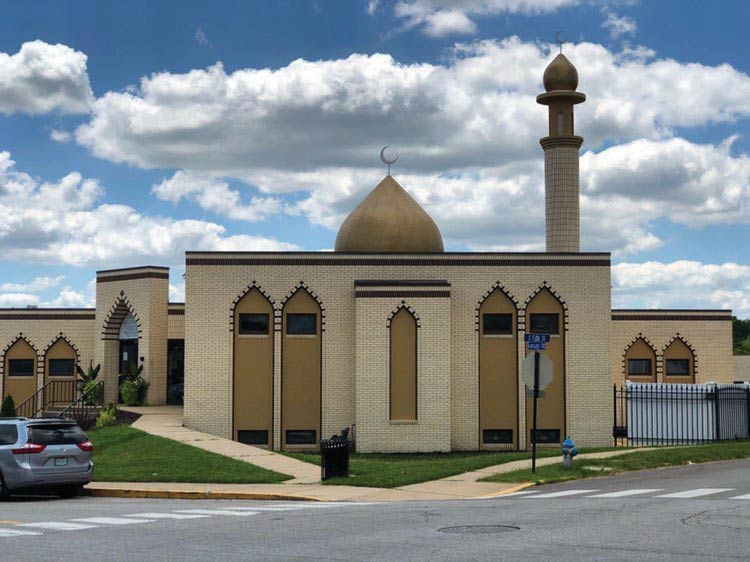
Islam is always fighting a battle of misinformation about what it stands for and believes in. Presumably to this end, the ICCM website makes these three statements:
“Muslims follow a religion of peace, mercy, and forgiveness that should not be associated with acts of violence against the innocent.
“‘Jihad’ does not mean ‘holy war.’ Jihad means to strive, struggle, and exert effort. It is a central and broad Islamic concept that includes struggle against evil inclinations within oneself, struggle to improve the quality of life in society, struggle in the battlefield for self-defense (e.g., having a standing army for national defense), or fighting against tyranny or oppression.
”Under Islamic law, women have always had the right to own property, receive an education, and otherwise take part in community life. Men and women are to be respected equally. The Islamic rules for modest dress apply to both women and men equally. (Men cannot expose certain parts of their bodies, wear gold or silk, etc.) If a particular society oppresses women, it does so in spite of Islam, not because of it.”
The publication reached out to leaders in Columbia‘s Islamic community, but no response came in time to make the publication date. Nevertheless, we would be remiss to exclude one of the world’s largest religions.
- Pew Research says Islam is the second-largest religion in the world behind Christianity, estimating that approximately a quarter of the world’s population was Muslim in 2015, and Islam is currently on pace to surpass Christianity as the world’s largest religion later this century.
- There were an estimated 3.5 million Muslims in America in 2017.
- Like Judaism and Christianity, Islam is strictly monotheistic.
- There are five pillars of Islam: declaration of faith, prayer, charitable giving, fasting as a form of self-purification, and pilgrimage to Mecca.
- Ramadan is a key Islamic holiday whose timing varies year to year depending on the lunar calendar; it is a holy month marked by fasting, and ends with Eid al-Fitr, a three-day feast.
- The Quran is Islam’s holy text; Muslims believe the Quran was a revelation from God (called Allah in Muslim theology) that was revealed to the Prophet Muhammad through Gabriel the angel. Muslims believe it is the literal word of God.
- The Islamic Center of Central Missouri website states that “Muslims believe in a chain of prophets beginning with Adam and including Noah, Abraham, Ishmael, Isaac, Jacob, Joseph, Job, Moses, David, Solomon, and Jesus. God’s eternal message was reaffirmed and finalized by the Prophet Muhammad (peace be on them all). One becomes a Muslim by saying, ‘There is no deity but God, and Muhammad is the messenger of God.’ By this declaration, the person announces faith in all of God’s messengers.”



